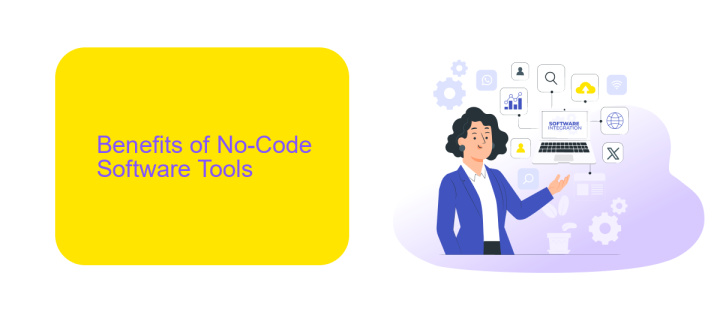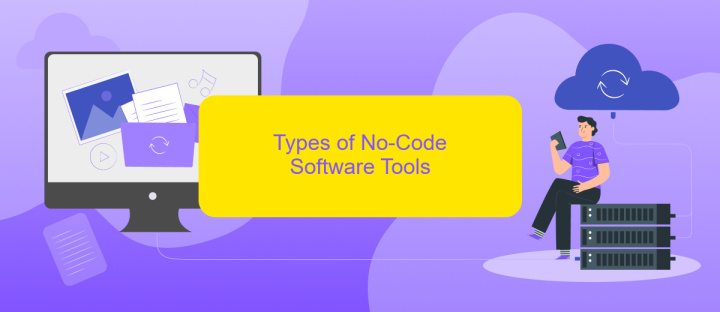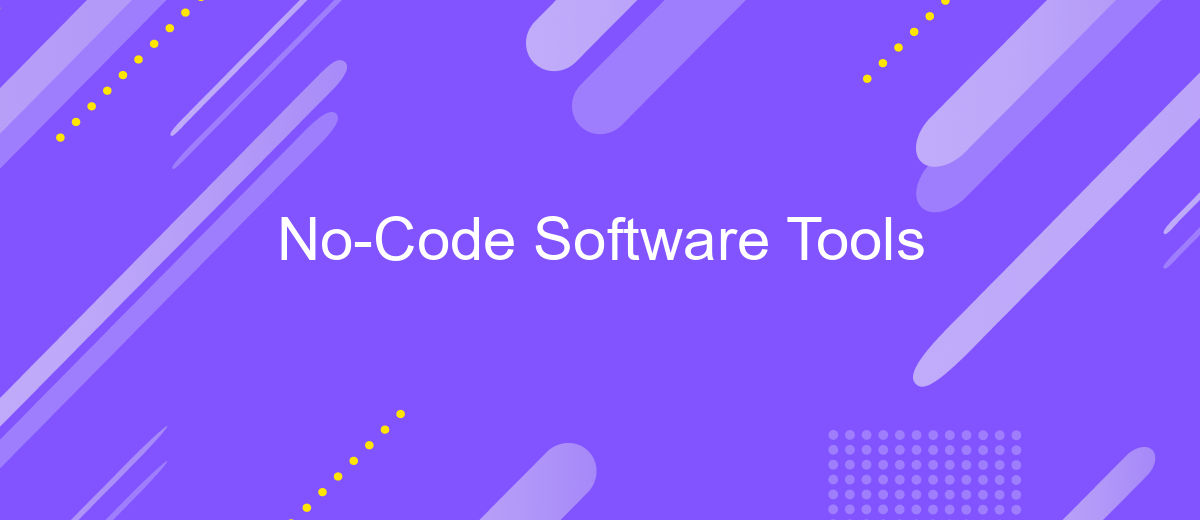No-Code Software Tools
In today's rapidly evolving digital landscape, no-code software tools have emerged as a game-changer, empowering individuals and businesses to create applications without extensive programming knowledge. These tools democratize technology, enabling users to innovate and solve problems efficiently. This article explores the rise of no-code platforms, their benefits, and how they are transforming the way we approach software development.
Introduction
No-code software tools are revolutionizing the way individuals and businesses create applications, websites, and automated workflows. These platforms empower users without extensive coding knowledge to build and deploy functional solutions quickly and efficiently. By leveraging intuitive interfaces and drag-and-drop functionalities, no-code tools democratize software development, making it accessible to a broader audience.
- Rapid application development
- Cost-effective solutions
- Increased accessibility
- Enhanced collaboration
One of the key advantages of no-code tools is their ability to integrate seamlessly with various services and platforms. For instance, ApiX-Drive allows users to automate workflows by connecting different applications without writing a single line of code. This capability not only saves time but also reduces the potential for human error, making business processes more efficient and reliable. As a result, no-code tools are becoming an essential part of the modern digital landscape.
Benefits of No-Code Software Tools

No-code software tools offer a multitude of benefits that make them an attractive option for businesses and individuals alike. One of the primary advantages is the significant reduction in development time. Traditional coding can take weeks or even months, but with no-code platforms, functional applications can be built in a matter of hours. This rapid development cycle allows for quicker iterations and faster time-to-market, giving companies a competitive edge. Additionally, no-code tools democratize software development by enabling non-technical users to create and manage applications, reducing dependency on specialized IT staff and lowering overall costs.
Another major benefit is the ease of integration with other services and platforms. Tools like ApiX-Drive simplify the process of connecting various applications without the need for complex coding. This seamless integration capability ensures that different systems can work together harmoniously, enhancing operational efficiency. Furthermore, no-code platforms often come with built-in security features and compliance standards, ensuring that your applications are not only functional but also secure. Overall, no-code software tools provide a flexible, cost-effective, and efficient solution for modern business needs.
Types of No-Code Software Tools

No-code software tools have revolutionized the way individuals and businesses create applications without needing extensive programming knowledge. These tools can be broadly categorized into several types based on their functionality and use cases.
- Website Builders: Tools like Wix, Squarespace, and Webflow allow users to create professional websites using drag-and-drop interfaces.
- App Development Platforms: Platforms such as Adalo and Bubble enable users to build mobile and web applications with visual programming.
- Automation Tools: Services like ApiX-Drive help users automate workflows by integrating various applications and services without coding.
- Database Management: Tools like Airtable and Knack provide easy-to-use interfaces for managing and organizing data.
- Design Tools: Canva and Figma offer powerful design capabilities that can be utilized without any design or coding skills.
These no-code tools empower a wide range of users, from entrepreneurs to large enterprises, to create and manage digital solutions efficiently. With the continuous advancement of no-code technology, the potential for innovation and productivity is limitless.
Case Studies and Examples

No-code software tools have revolutionized the way businesses operate, allowing non-technical users to create sophisticated applications. One notable example is the use of these tools in automating business processes. A small e-commerce company utilized a no-code platform to streamline their order management system, reducing manual errors and improving efficiency.
Another compelling case study involves a marketing agency that leveraged no-code tools to build customized client dashboards. These dashboards integrated data from various sources, providing real-time insights and enhancing client satisfaction. The agency reported a 30% increase in productivity as a result.
- A startup used a no-code tool to develop a minimum viable product (MVP) within weeks, attracting early investors.
- A healthcare provider automated patient appointment scheduling, significantly reducing administrative workload.
- A financial consultancy implemented no-code solutions to automate their reporting processes, ensuring compliance and accuracy.
For businesses looking to integrate various applications seamlessly, services like ApiX-Drive offer powerful no-code integration solutions. ApiX-Drive enables users to connect different software applications effortlessly, facilitating data flow and enhancing operational efficiency. These case studies highlight the transformative potential of no-code tools across various industries.
Conclusion
No-code software tools have revolutionized the way businesses and individuals approach development. By eliminating the need for extensive coding knowledge, these tools empower users to create sophisticated applications, websites, and automations with ease. This democratization of technology fosters innovation and allows for rapid prototyping, making it accessible to a broader audience.
Moreover, integrating various services has become simpler with platforms like ApiX-Drive, which streamline the process of connecting different applications without the need for manual coding. Such integrations enhance productivity and efficiency, enabling users to focus on their core tasks. As no-code tools continue to evolve, they promise to further reduce barriers to entry in the tech world, paving the way for a more inclusive and dynamic digital landscape.
FAQ
What are No-Code Software Tools?
Who can benefit from using No-Code tools?
How secure are No-Code tools?
Can No-Code tools integrate with other software?
What are some common use cases for No-Code tools?
Apix-Drive will help optimize business processes, save you from a lot of routine tasks and unnecessary costs for automation, attracting additional specialists. Try setting up a free test connection with ApiX-Drive and see for yourself. Now you have to think about where to invest the freed time and money!

